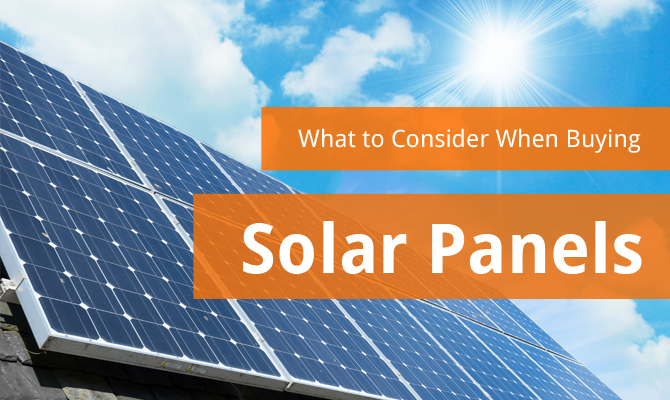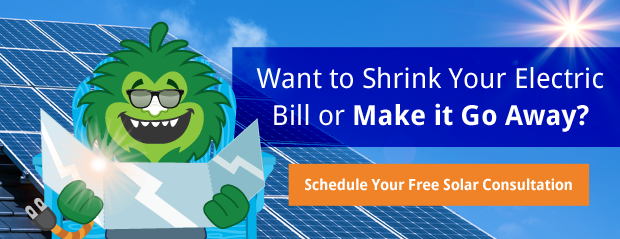 If you’re trying to make your home more environmentally friendly and energy-efficient, installing solar panels is the way to go. Before you call up the first solar installer you find on Google, here’s what to consider when buying solar panels.
If you’re trying to make your home more environmentally friendly and energy-efficient, installing solar panels is the way to go. Before you call up the first solar installer you find on Google, here’s what to consider when buying solar panels.
How to pick your solar contractor
Just how well a waiter waits on you can make or break your dining experience, the same goes for selecting the right contractor for your solar project. Will you be dealing with different people at each stage in the installation process? Or will you work with the same team from start to finish? Here at Wattson Home Solutions, one team of solar experts is assigned to each project. The same team will guide you through solar financing, as well as the installation of your system. You don’t have to jump through hoops with call centers or annoying automated phone systems.
Go local!
When you visit the farmer’s market, doesn’t it feel good knowing you helped support a local business by making a purchase? Local sourcing isn’t just for produce anymore. Get the same feeling by supporting a local solar contractor. Wattson Home Solutions is one of just a handful of Massachusetts-based solar companies that are incorporated, completely local, and don’t outsource their labor/projects to other parties. Most companies in the solar business are like big-box retailers. They treat their customers like numbers, and the experience can be very impersonal. In contrast, Wattson Home Solutions solar contractors may actually be your neighbors. We’re owned and operated by a Massachusetts homeowner who understands your particular concerns: how to manage your solar system on rainy days, what happens in the snow, etc. If your solar contractor is based outside of New England, they may not understand the challenges only New Englanders face that could impact their solar installation.
Read reviews.
In the twenty-first century, consumers like to be informed. As such, there are dozens of resources out there to brush up on your facts about a company or product. Installing solar panels to your home is a huge investment. As a result, you have to do your due diligence. While finding reviews may not be as simple as checking the Rotten Tomato score of a movie or number of stars on Amazon, a little bit of digging can get you what you need. Start by checking a company’s testimonials. Do they sound too good to be true? Check out their Yelp, Angie’s List, and even their Facebook page for reviews. When looking at reviews, notice the dates they were published. Some companies reward customers for leaving reviews, so be wary of a company getting 15 positive reviews in one week.
Get references.
What did you do the last time you needed advice on a big project? Did you ask someone? Word of mouth is one of the best forms of advertisement, as well as the easiest way to find out if something was worth the money. Do any of your neighbors have solar panels? Ask them who their contractor was and whether they were satisfied with their experience.
Understand the difference between buying vs. leasing solar panels.
The age old debate: Should you buy or lease solar panels? Think of leasing solar panels as a quick fix. Boom. You have solar panels on your roof. You already created a long list of things you’ll buy with all of your energy savings. Then, you get your first energy bill and…. Wait a second. You ask, “This is costing me how much?!” You cry as you realize that not only have you barely made a dent in your energy bills, but you also don’t qualify for any of the government incentives you thought you’d get.
Buying solar panels is much friendlier for your wallet in the long run for a number of reasons. You don’t have to worry about transferring contracts if you decide to move. Because you own the system, it actually increases your home’s value. And you can potentially make money from your solar panels through the SREC program.
Explore your solar financing options.
When you consider buying solar panels, make sure that you keep price in mind. While the federal and local government are doing as much as they can to make solar panels more affordable for homeowners, you should still consider them to be an investment. Purchasing solar panels makes you eligible for tax breaks and rebates. It also makes you a good candidate for solar financing. We partnered with Sungage Financial and DCU, a local credit union, to help Massachusetts homeowners like yourself finance your solar installation project and get the maximum energy savings possible.
Want to know how much money can solar panels save you? Schedule your free solar consultation! You’ll learn how much you can save both short-term and long-term after you go solar.








